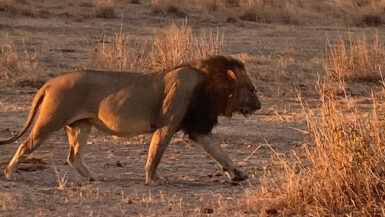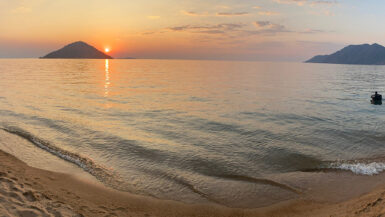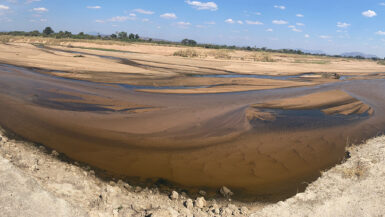General info about Tanzania:
Lying just south of the equator, Tanzania is located in the tropics and has a hot climate. They have 2 seasons: warm and dry, coinciding with the northern hemisphere summer. Hot and wet, roughly in the northern hemisphere winter months.
The landscape is very diverse: tropical islands like Zanzibar, Pemba, and Mafia. The whole mainland coast is lush and green with white sand beaches. Inland there are mountains, rainforests, and savannas offering a range of different habitats.
In Tanzania, you will also find the world-famous Mount Kilimanjaro and the Serengeti National Park.
Of course, Tanzania is also home to the Rift Valley system with the large lakes of Victoria, Tanganyika, and Nyasa (Lake Malawi).
It is also thought of as being the ‘cradle of humanity’. It is likely modern humans evolved in East Africa; some of the earliest fossils of early hominid species are found here.
A beach holiday combined with a safari makes this an understandably popular travel destination.
Tanzanian food:
The food here is delicious. Fresh produce, grown locally. Spices from Zanzibar & Pemba. Tanzania exports very little food. They don’t import much either. What they grow, they eat. Large parts of the country are fertile: lush green coastal areas, and verdant mountains in the south and west giving perfect conditions for growing.
You will hear the locals insist on being served only ’Mbeya rice’. A deliciously tasty rice only grown in the Mbeya region, but so highly sought after that none ever leaves the country. Traditionally Tanzanians eat buffet-style: 5 or 6 dishes laid out on the table, you help yourself to whatever you want. Boiled maize flour (ugali) and rice are staples, beans, peas, roasted ginger & lemon chicken, chips, beef stew, and potato stew can all be on the menu. Fresh fruits are usually on the menu for breakfast. Suma is a fussy vegan, and she has no problems with the food: many dishes are meat-free.
Street vendors sell a variety of tasty morsels:
Kitimoto is very nice – it’s roasted seasoned pork. Mishkaki is savoury beef roasted on a skewer and sold everywhere, it is always frustratingly chewy. Roast chicken is found everywhere in the towns and cities.
Boiled peanuts (ground nuts) are available. They are a lot tastier than they look. Fresh fruits are everywhere when in season. Mango, Papaya, strawberries, Pineapple, and many varieties of banana.
The local beer is pretty good: Kilimanjaro, Safari & Serengeti. Spirits: if they are in a glass or plastic bottle, all good. Sold in a plastic sachet: maybe avoid it.
Currency:
The local currency is Tanzanian shillings (TSh). US Dollars are widely accepted in tourist areas to pay for excursions and accommodation. Outside the tourist areas, you need to pay in TSh. ATMs are available in all medium-sized towns and the larger cities. It is a good idea to open an international bank account before you arrive. We bank with HSBC and the card can be loaded up with different currencies using online banking with great exchange rates. Cards can then be used without incurring any additional fees.
Cards can be used to pay for entrance into National Parks, they don’t accept cash.
Communications:
Upon arrival either at the border post or airport, you will find people selling phone data packages. Vodacom seems to be the best. The seller will install the SIM and set up your phone for you. You’ll then have a local telephone number to make hotel and excursion bookings etc, and a data package so you can access the internet. Your phone will need to be unlocked to any network. If you are on contract it’s worth looking into this and getting your phone unlocked before you get to Tanzania.
If you have whatsapp, your number will be unchanged, so is the best way to call people back home. For local calls, many Tanzanians (ones not involved in tourism) don’t have data but use SMS and regular phone calls.
Phone connection in all urban areas is excellent. You will get good phone reception in all but the smallest villages. Even in the national parks, there is very good coverage (unless you go too far off the beaten track). The safari guides all use mobile phones to communicate with each other.
I use a laptop for work purposes while travelling, and find that using the phone hotspot with a Vodacom phone data plan works really well. Checking emails, checking websites and Google Maps are all fine with a data plan. Just don’t go streaming movies or box sets.
I’m amazed at how good the phone connection is in what is meant to be a ’third world country’. It is far better than in many rural parts of the UK.
Religious conservatism:
It is a mostly Christian population on the mainland, with a mixture of Muslims and Christians on the coast, and Zanzibar is majority Muslim. It is a very conservative society, and away from the beaches, the local women are well covered up: long skirts/dresses and shoulders covered. Tourists are not expected to strictly conform to this dress code, but walking around town wearing a bikini or speedos would not be respectful.
Most Tanzanians are devoutly religious. Taking advantage of this, there is a plethora of Christian ‘prophets’, religious ‘healers’, and evangelical-style preachers whose main aim seems to be to extract money from poor people. Shame on them.
Security and safety:
Tanzania is an incredibly safe country to travel to. The people are warm, friendly, and are eager to help you. Of course, there is crime, as there is in any country. Just take the usual sensible precautions and you’ll be fine. Violent crime against tourists is unheard of. Traffic accidents are by far the greatest risk you will face.
Traveling with kids in Tanzania:
We travel with our 2 boys, who are now 10 and 12 years old (in 2023). We have been doing long road trips with them since they were very young, so they are well used to spending long times in the back of a car. ASPW has done a really informative video on YouTube on this subject and also has some great insights into taking kids camping in areas where there are predators.
One thing I would underline is to make sure that the kids are protected against mozzies. Kids don’t care much about malaria or mozzies and will get bitten a lot more than adults. Malaria is far more dangerous to children than it is to adults.
Health – diseases
Many would have you think there are all sorts of nasty parasites and diseases waiting for you in Africa. And indeed there are, but they are all avoidable or treatable. Get up to date on your vaccines before traveling. Malaria is by far the most prevalent disease, but there are steps you can take to reduce your risk of infection, and effective treatments if you do get infected. Other nasties worth mentioning are bilharzia and cholera, both water-bourne diseases but very different in their transmission. Lake Nyasa/Malawi is bilharzia-free, but there are cholera outbreaks during the rainy season on the Malawian side.
Dealing with mosquitos & Tse-tse flies:
During the dry season, the mosquitos are not as prevalent as in the wet season. The dry season ties in with the European & North American summer holiday season, so is the time when most tourists visit.
Both mozzies and tse-tse flies transmit disease, so it is best to try to avoid being bitten if you can. You will encounter far more mozzies than tse-tse flies, so I’ll address these first.
Mosquitos:
You will need to bring along anti-malarial medication with you and take it as advised. I detest mozzies and have come up with what I think is the best way to reduce bites.
Mozzies like to come out in the evening. As soon as the sun sets, get your long-sleeved top, trousers and socks on. Roll on or spray on some repellant like Jungle Fever, just on the back of your hands and neck, and a light spray around the ankles. During the daytime, if you are walking through dense forest, you will encounter mozzies.
Now you are all set to sit around the bar or campfire and don’t have to worry about the mozzies.
The Anopheles mosquito is responsible for transmitting the malaria parasite, and this species likes to bite in the middle of the night when you are sleeping.
After sundown, we like to prepare the sleeping area. A widely available insect-killing aerosol like DOOM is great. Give the room a good spray, close the doors, and leave the room for a while. Its nasty stuff and you don’t want to breathe it in. Open the door as little as possible when going into and out of the room, so as not to let them back in.
Your accommodation will have mosquito nets. Check the net for rips or holes in the mesh. I guarantee there will be holes in your mozzie net that will be big enough for a mozzie to get through, and a mozzie will find that hole. Plug the holes with bits of rolled-up toilet paper.
When you get into bed, make sure the mozzie net is draped nicely over the edge of the bed, with no gaps around the edges. And lastly, just before getting your head down, use a head torch to check no mozzies are hiding on the inside of your mozzie net. Try not to lean against the net during the night as the mozzies can bite through the fine gaps in the mesh if your arm is pressed up against it. Some places have really good four-poster bed-type setups so theres loads of room inside the mozzie net.
Tse-tse flies:
These are nasty little buggers. Fortunately, you won’t encounter them too often, and when you do you’ll know about it. I have had mercifully few encounters with them, so are not so well placed to offer advice. They are similar to the horseflies we get here in the UK, but a bit smaller and more numerous when you do encounter them. Like horseflies, they will try to bite holes in you, and mop up the blood.
Apparently, they are attracted to certain colours, and in some areas, you will see coloured mesh suspended between trees that act as Tse-tse fly traps. Dont be put off wearing any particular colour. If tse-tse flies are around, they will attack you regardless of your fashion choices.
As you drive along they cling onto the windscreen, wing mirrors, and side windows, patiently waiting for you to open the windows!





